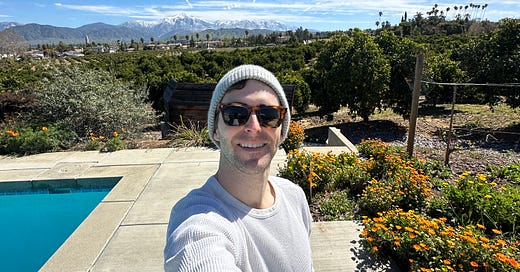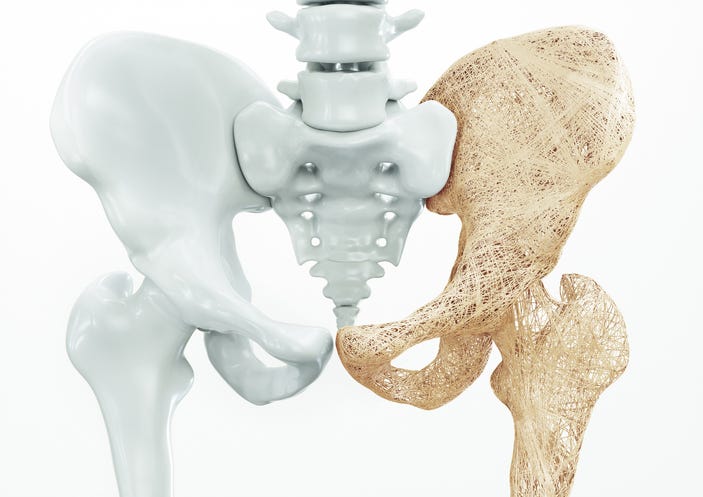“You’ve Got to Be Joking!”
That’s what I yelled when I opened my routine bloodwork results last year.
“How am I deficient in Vitamin D… I live in sunny Miami!”
The flashbacks from medical school hit me: brittle bones on x-rays from elderly women with severe osteoporosis, or children suffering from rickets due to Vitamin D deficiency. But me? I was outside every day (okay, running between hospitals and hiding in the shade) and I ate foods with Vitamin D—or so I thought.
Turns out, even in sunny places, Vitamin D deficiency is incredibly common. That got me diving into the research to understand what causes it, how it affects us, and what we can do about it.
This week, we’re shining a light on the “sunshine vitamin” and why it’s essential for your health (ESPECIALLY during the fall and winter months).
What is Vitamin D, and Why Do You Need It?
Vitamin D isn’t just a vitamin—it’s a hormone-like powerhouse that helps your body function at its best:
Mood Booster: Vitamin D is involved in serotonin synthesis. Serotonin is one of the most important neurotransmitters in our brains for regulating our mental health. Low levels of vitamin D are linked with increased risk of depression, ADHD, and anxiety disorders.
Bone Health: It also helps you absorb calcium for stronger bones. Low vitamin D puts you at risk for brittle bones and fractures.
Immune Support: It’s critical for fighting off colds and flu and can even reduce chronic inflammation tied to many diseases.
Why is Vitamin D Extra Important in Winter?
Vitamin D comes from the sun and our diet. In winter, shorter days and more time indoors mean less sun exposure, which can lead to lower Vitamin D levels. That’s precisely when our immune system needs a boost to fend off seasonal bugs and seasonal depression.
How Common is Vitamin D Deficiency?
It’s more common than you think. Over 4,000 U.S. Adults in the National Health and Nutrition Examination Survey were analyzed for vitamin D levels in the early 2000’s. The data found that an alarming 41.6% of them were Vitamin D deficient. More recent reports from the CDC suggest that between 10-31% of U.S. Adults may be deficient. Signs include:
Mood changes: depression, anxiety, irritability
Fatigue
Frequent illness
Muscle or bone pain
How to Test for Vitamin D
The best way to check your levels is with a 25-hydroxy Vitamin D test.
Here’s the tricky part though.. different medical societies have different “cutoff” values for what is considered low or deficient. For example, the National Institute of Health defines vitamin D deficiency as less than 20 ng/mL. The Endocrine Society recommends a preferred range of 40 to 60 ng/mL. I’ve noticed that many labs will work off of the 20 ng/mL cutoff, meaning that if you’re vitamin D level is 21, it won’t appear low…
Personally, I like to see my patients get above 50 ng/mL for optimal health, although 40 is likely okay.
There’s one other tricky part to testing…
Unfortunately, Vitamin D testing isn’t usually in the “routine” lab work that your doctor orders. Therefore, you may need to request it. I know asking your doctor for tests can be intimidating., so here’s a script you can use.
"Hi, Dr. ____. I’d like to check my Vitamin D levels, as I’ve been feeling [fatigued, low energy, etc.]. Can you order a 25-hydroxy Vitamin D test for me?"
How to Increase Your Vitamin D Levels
Okay so you want to increase your levels naturally. Here’s what you need to know:
Soak Up the Sun
Spend at least 20-30 minutes outdoors daily (depending on your skin tone and location). There’s a myth that I’ve seen circulating on social media that sunscreen completely blocks vitamin-D absorption. Although it is possible that a small amount of absorption is blocked, wearing sunscreen is the most important thing you can do to prevent skin cancer and for that reason I always recommend wearing sunscreen if you are exposed to the sun.Eat Vitamin D-Rich Foods
Fatty Fish: Salmon, mackerel, sardines
Egg Yolks: Also a great source of protein
Mushrooms: Sun-dried or UV-exposed varieties
Fortified Foods: Milk, orange juice, cereals
Supplement if Needed
If sunlight and food aren’t enough, Vitamin D3 supplements may be helpful. Most people do well with 1,000-2,000 IU daily, but talk to your doctor for tailored advice.
My Personal Journey
When my bloodwork flagged a deficiency, I started supplementing with Vitamin D3 and spent more intentional time outdoors with sun protection. In a few weeks I’ll be getting my repeat tests and am hoping to no longer be deficient. I will report back!
Takeaway
Vitamin D is essential for your health—physically, mentally, and emotionally. Whether through sunlight, food, or supplements, keeping your levels in check is one of the simplest ways to boost immunity, energy, and mood—especially during winter.
Take action this week:
Add Vitamin D-rich foods to your meals.
Get outside for some sunshine.
Ask your doctor about testing your levels.
Let’s keep thriving together.
Talk soon,
Dr. Jake
Disclaimer
This newsletter is for informational purposes only and does not constitute medical advice. The content shared is based on evidence-supported research and my personal experiences but is not intended to replace professional medical advice, diagnosis, or treatment. Always consult your personal doctor or a qualified healthcare professional before starting any new treatments, making changes to your health routine, or addressing specific medical concerns.
This newsletter does not establish a doctor-patient relationship. While I aim to provide accurate and up-to-date information, I cannot guarantee its relevance to your unique health situation.
If you are in crisis or need immediate support, please contact a healthcare provider or one of the crisis resources provided at the end of this newsletter. Your health and safety are paramount.
Sources:
Chauhan K, Shahrokhi M, Huecker MR. Vitamin D. [Updated 2023 Apr 9]. In: StatPearls [Internet]. Treasure Island (FL): StatPearls Publishing; 2024 Jan-. Available from: https://www.ncbi.nlm.nih.gov/books/NBK441912/
Forrest KY, Stuhldreher WL. Prevalence and correlates of vitamin D deficiency in US adults. Nutr Res. 2011 Jan;31(1):48-54. doi: 10.1016/j.nutres.2010.12.001. PMID: 21310306.
https://www.cdc.gov/nutrition-report/about/index.html
Crisis Hotlines & Resources
United States: Call or text 988 for the National Suicide & Crisis Lifeline.
Canada: Call 1-833-456-4566 or text 45645.
United Kingdom: Call 116 123 for Samaritans or text SHOUT to 85258.
Australia: Call 13 11 14 for Lifeline Australia.
International: Visit befrienders.org for global mental health support.







Getting just 15 min of sunlight a day can help so much with better sleep at night. It helps with the melatonin and I’ve read it sets your circadian rhythm.
I use vitamin k2 along with d3 as it helps your body absorb d3 😊